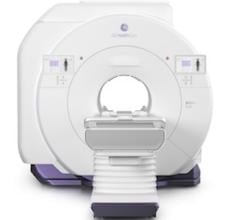
March 18, 2020 — RSIP Vision, a global leader in artificial intelligence (AI) and computer vision technology, announced a new innovative AI-based solution for 3-D reconstruction of knees from X-ray images. This technology provides physicians with a rich 3-D modeling of each bone, which could provide critical data for surgery planning and implants fitting, improving physicians' workflow and reducing the need for high-cost and high-radiation currently used methods. Physicians will receive a precise 3-D anatomical model of the patient knee, enabling optimal pre-op planning and precise implant tailoring.
X-ray scanners are widely available and cheaper than computed tomography (CT) or magnetic resonance imaging (MRI) scanners. Moreover, they expose the patients to much less radiation compared to CT scanners. However, X-ray images give only 2-D information resulting from the summation of the 3D rays through the anatomical objects. As a result, doctors usually take two X-rays images of lateral and AP views for a rough estimate of the 3-D anatomical structure. Nevertheless, what is still missing is a rich 3-D modelling of each bone, which could provide critical data for surgery planning and implants fitting. The new technology developed by RSIP Vision generates a 3D model of the knee joint from two X-ray images of AP and lateral views.
The model is based on convolutional neural networks, a recent technique which have been proven to be very effective for various types of tasks. In particular, deep neural networks-based models outperform all previous approaches for image segmentation. However, 3-D reconstruction from 2-D images is still challenging for neural networks, due to the difficulty of representing a dimensional enlargement with standard differentiable layers. Reconstruction of bone surfaces in particular is extremely challenging, due to the transparent nature of the X-ray images. RSIP Vision addresses these challenges by introducing a special dimensional enlargement layer.
The main usage of the 3-D model is for planning and accurate measurements that are needed to precise fit of the implant or for patient specific intraoperative guidance.
Accordingly, the testing has been done by comparing the 3-D model to a CT scan of the patient. The distance between the model and the real scan is the precision measure we need.
From our testing - the accuracy of this technology is close to 1mm which is the required precision needed for best fit for the implant in total knee replacement.
The results show that this new technology is very effective for reconstructing 3D models of knee bones from two standard bi-planar X-ray views. The deep neural network model, together with synthetic data creation and effective training process, proves to be a powerful technique to create a rich 3-D modeling of each bone with low-cost, widely available and low-radiation imaging modality.
"Knee replacement surgeries are common, among other joint surgeries. The most important factor for achieving high accuracy and success rates is preoperative planning, during which the orthopedic surgeon normally uses an expensive, time consuming, scarcely available modalities (CT, MRI…). To overcome this obstacle, RSIP Vision developed a new technology based solely on X-ray beams that is readily available, accurate, cheap and reproducible, which could be applied in poor peripheral as in rich central areas, while preserving the segmentation quality," said Rabeeh Fares, M.D., radiologist; Department of Diagnostic Radiology, Sourasky Medical Center, Tel Aviv.
For more information: www.rsipvision.com


 February 20, 2026
February 20, 2026 









